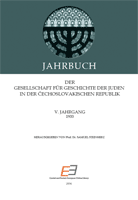

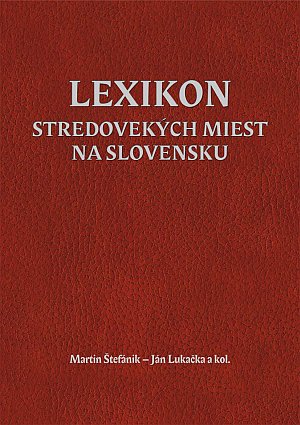
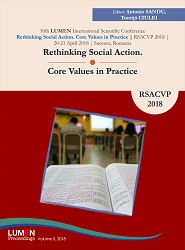
Keywords: Financial behaviour; perception; poverty; survey;
The aim of this paper is to explore the financial behaviour of guaranteed minimum income beneficiaries in Romania, based on their responses in a survey with national representativity for this target group. The main themes of analysis are: perception of their financial situation and satisfaction with the standard of living, perceived financially induced limitations, as well as financial behavior, considering income sources, savings and debt. The results are consistent with the reviewed literature on savings and debt under the poverty context: most respondents don’t have access to mainstream credit and they financially depend on their social network of family and friends in times of need. Yet, in spite of the financial support of their social networks and of affirmed temperance in spending habits, they are faced with health endangering financial limitations - through lack of food or necessary medical treatments.
More...
Keywords: social media; web; online information environment; image analyze; influence; NATO;
As social media, and the web as a whole, become more visual, organizations and governments can no longer rely solely on textual analysis when seeking to better understand their audiences in the online environment. Methods for thorough analysis of the online information environment, including visual content, must be developed. This chapter discusses the type of information images contain and how it can be extracted, and proposes a computer based image retrieval to extract valuable information from large volumes of images and aggregate it in a meaningful way.
More...
Keywords: Brazil; Crimmigration; Netherlands;
The purpose of this paper is to verify the extent to which Brazilian Migration Policy has been influenced by the US War on Drugs and how, justified through a security discourse, it employs practices that violate human rights. A key objective is to determine if the combined effects of drug securitization and historical racism are resulting in the start of a “crimmigration” process. The fact that the federal police, the agency in charge of policing drug trafficking, is also the one that manages immigration, is a major factor in this assessment. This paper further analyses the immigration policy of the Netherlands, for two key reasons. Because a Crimmigration process is also apparent in the Netherlands comparison with the Brazilian context provides for an assessment of the relative degrees of Crimmigration. Secondly, because Dutch drugs policy is fundamentally different to Brazil’s, it provides scope for valuable insights into how differing causal factors lead to the same results, such as the fact both countries treat migration policy with a security bias. The methodology applied in this research is based on bibliographic materials and governmental documents related to the immigration process in Brazil and in the Netherlands.
More...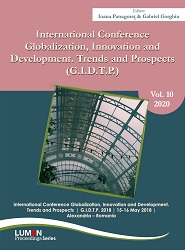
Keywords: environmental auditing; environmental accounting; environmental remediation costs; environmental management system;
The importance of environmental information at international level has contributed to the evolution of environmental reporting of economic entities, both in the annual financial statements and in special reports dedicated exclusively to environment and sustainable development. Thus, a new concept - environmental audit - emerges as an instrument for the certification and control of environmental information in accordance with legal regulations. Environmental auditing has been developed to reduce the environmental costs and recognized sanctions for industrial accidents with environmental and human impacts. The main purpose of this research is to present how the environmental audit contributes to the evaluation and the control of the environmental information, which are published by the enterprise whose activity have an significant impact about the environment. Environmental auditing is a voluntary activity, standardized by independent, non-regulatory professional bodies. The research undertaken is part of constructive, positivist research, using descriptive analysis as the main method of research. The source of the information used in this article is the study of scientific papers in the field of environmental auditing, scientific papers in the field of environmental and accounting researches regarding the environment of the normative acts, as well as other reports and communications on environmental information and the international standards applicable on environment field.
More...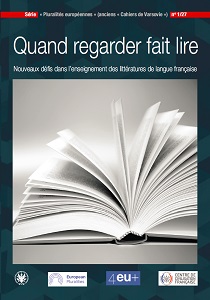
Keywords: French history and culture; literature; reading; source texts; song; pleasure
In the first part of the article the author refers to opinions on the reasons for the decrease in readership among young people, including academic students. The development of new technologies, the Internet, and life focused mainly on the present moment do not encourage a reflection necessary to deal with a literary masterpiece. It is impossible to stop those changes in students’ attitude, which does not mean that we should give up proposing them texts to read, during classes of French history and culture. In the second part, the author shares her experience and thoughts conceived as a result of the analysis of source texts and song lyrics, foremost poetic ones.
More...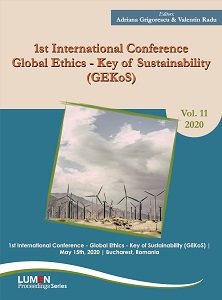
Keywords: military development; ethics; army; proliferation; justification;
The 21st century, ethics has become a much challenged concept. As globalization has turned the world into a connected trade platform, international business flourished. Like many industries, arm trading has evolved and is subject to major changes both qualitative and quantitative. How important are revenues in comparison to fueling regional conflicts? Ethics has become an important criterion through which we should regard arms trading as well. States are engaged in a rearing arms race labeling it as peacekeeping and thus generating instability and tensions. At which point commercial activities and political interests converge and to what extent ethic considerations are respected? The objective of the article is to outline the new architectural perspective of security and defense. Attempting to avoid future wars, the nations widen their power through the strengthening of the military forces. The increasing defense budget, the development of the military capabilities and the expenditures - weapons industry’s spending in the last decade contradict the states' allegations that they represent only proactive measures to face potential threats; for the defense walls must be built, not purchased cannons. The purpose of this paper is to highlight the major changes regarding national defense in today’s challenges. The cutting-edge technology developed in the name of resilience to the asymmetries in the theaters of operations (and not only) is transposed economically as larger acquisitions and budgets allocated for the security of nations. Moreover, in the military plan it consolidates the position of a state in the global polycentric reality, shifting the balance towards hard power.
More...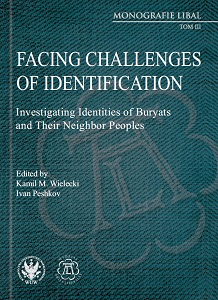
Keywords: Buryats; Buddhism; Orthodoxy; Christianization; Russian Empire; Russification; state identity; spiritual space
This paper deals with the problems of religious coexistence in late-imperial Russia based on the case of Buryatia. The only state religion – Russian Orthodoxy – saw its task in converting the non-Russians by all possible means and in shortest time. This policy coincided with the interests of the state, as religious homogenization was considered the most effective way to achieve the desired loyalty and patriotism among all subjects of the Empire. Buddhism, which according to the Orthodox clergy was a so-called foreign religion, presented a potential threat to the state, as its believers could be under influences from abroad. The author argues that the secular authorities both in St. Petersburg and in Eastern Siberia faced a dilemma that consisted in the necessity to conduct Russification among non-Russians and simultaneously to strengthen the borders of the Empire in the East. The Buryat subjects were officially allowed to confess Buddhism, since the authorities, being aware of danger from Qing China, needed a balanced policy towards them to avoid discontent and disturbances. Under such conditions, the Orthodox clergy, missionaries in particular, disregarding the damage their intolerance could cause to the state’s interests, became opponents to Siberian officials, accusing them of supporting Buddhism and Buddhist priesthood instead of rendering all possible assistance in the Christianization of non-Russians.
More...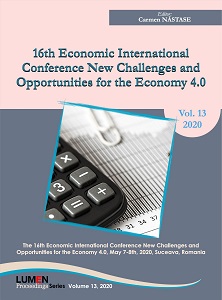
Keywords: housing conditions;housing affordability;housing costs;burden;housing deprivation;
The accessibility of housing is one of the challenges to which the global economy, and implicitly, the European economy, must respond from the perspective of ensuring sustainable socio-economic development of contemporary society.This challenge is the result of problems whose manifestation has been accentuated in the last decades: increasing the rate of housing deprivation, limiting the access to housing for some social categories, emphasizing social exclusion and segregation.This study aims to identify, after a comparative analysis of the indicators associated with housing costs in the European Union and Romania, the main problems facing our country, as a state of the European Union, from the perspective of housing affordability.The research focuses on the study of housing conditions and the aspects that define the housing affordability in Romania and the European Union. Romania has a housing stock dominated by houses (70.3% of homes built before 1980), but which is not burdened by major deficiencies (regarding the number of homes, number of rooms, living space).The deficiencies of housing in Romania are related to overcrowding and severe housing deprivation. In terms of housing costs, the research showed a high degree of burden on Romanian households with housing costs, among the highest in the EU, seven out of ten households feel the financial burden of housing costs and only 6% of households are not affected. Data provided by Eurostat for the period 2010-2018 were used for the analysis.
More...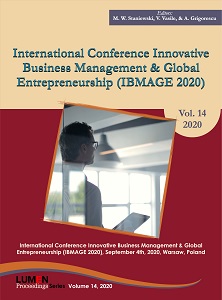
Keywords: Pandemic;COVID-19;Museum Visiting;Cultural Policy;Princely Court of Targoviste;
The new coronavirus (Covid-19) is one of the main challenges world today has to address. With no large scale availability vaccine yet, and more or less experimental medical treatments for curing the disease, we can safely say that we are still far behind a solution to this problem. This new pandemic is considered the biggest threat to the global economy since the Second World War and there is no aspects of human life have not been affected it, spiritual ones included. Its high contagiousness, as well as novelty, raised all kind of challenges and one of the main ones was our manner to produce answers, in early stages at least, this creating problem on its own and of its design. As well as all the other institutions, theatres, cinemas, concert halls, spaces of socialization and in the same time places of wonder, knowledge and spiritual enrichment the museums were heavily affected by the pandemic crisis, especially those who’s collections are not, but in very small proportion available, to the public through virtual media. Such a case is „Princely Court„ National Museums Ensemble from Targoviste, Dambovita County, Romania. The present paper proposes an overview of the highlights in institution′s activity the past years in comparison with how the pandemic crisis affected its activity in the past months and what were the responses given to keep the museum in the eye of the public. It will also try to summarize how and to what extent the activity went back to „normal” after the emergency state earlier imposed was lifted and how the visitors responded to the new realities.
More...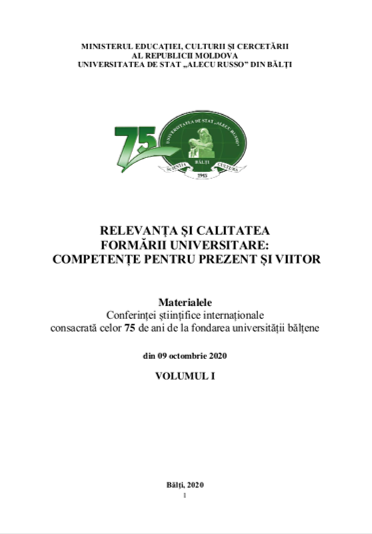
Keywords: diagnosis; agricultural enterprises; financial position; financial results; sustainable development
The research examines the activity and financial position of enterprises in the agricultural sector. The author highlights the main results obtained and trends in capitalization of profit in the sense of its efficient use for the development of agricultural holdings, increasing production volumes and ensuring financial stability. For the macroeconomic analysis of the financial position of farm holdings in the corporate and individual sector were used the data provided by the National Bureau of Statistics of the Republic of Moldova
More...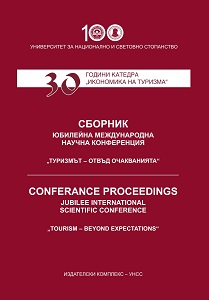
Keywords: growth; corporation; factors; productivity; tourism
A survey of corporate growth in tourism was sampled from 13 public tourism companies, for period 2007-2018. The indicators are selected and models of the different types of growth are drawn up. On this basis, the level and growth rates are determined, showing that corporate growth and investment dynamics are low and returns are sharply declining. The analysis of the type of growth indicates that extensive growth prevails. To investigate the impact of total factor productivity on growth, two models were compiled. On their basis proves that total factor productivity has had a strong negative impact on corporate growth.
More...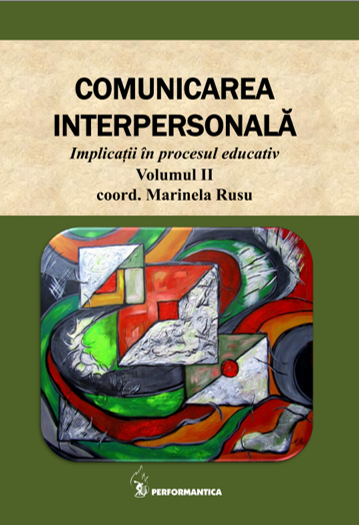
Keywords: art; horn school; musical instrument; horn;
In musical Romanticism, the horn instrument developed a lot. The chromatic horn appeared due to the invention of the valve by the inventor Heinrich Stölzel. Horn performers were trained in the European Schools, becoming very well-known and appreciated at the main princely courts. Many of the horn performers were prolific composers for the horn and at the same time dedicated teachers for their art. Horn schools flourished during this period, laying the foundations of the European Horn Schools of the twentieth century. In our country, the buds of the Horn School appeared in the middle of the last century, when the first horn performers were formed
More...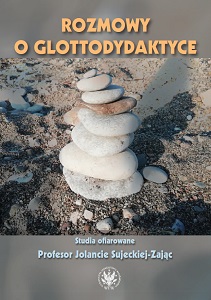
Keywords: second language acquisition (SLA); language learning; language teaching; didactics; French as L2
In this text, Ch. Martinez and U. Paprocka-Piotrowska discuss some questions essential for the didactics of languages in 21 st century. The interconnection between acquisition research and didactic practice, the new challenges for modern language teachers and the role of French in the Francophone community are at the heart of this interview.
More...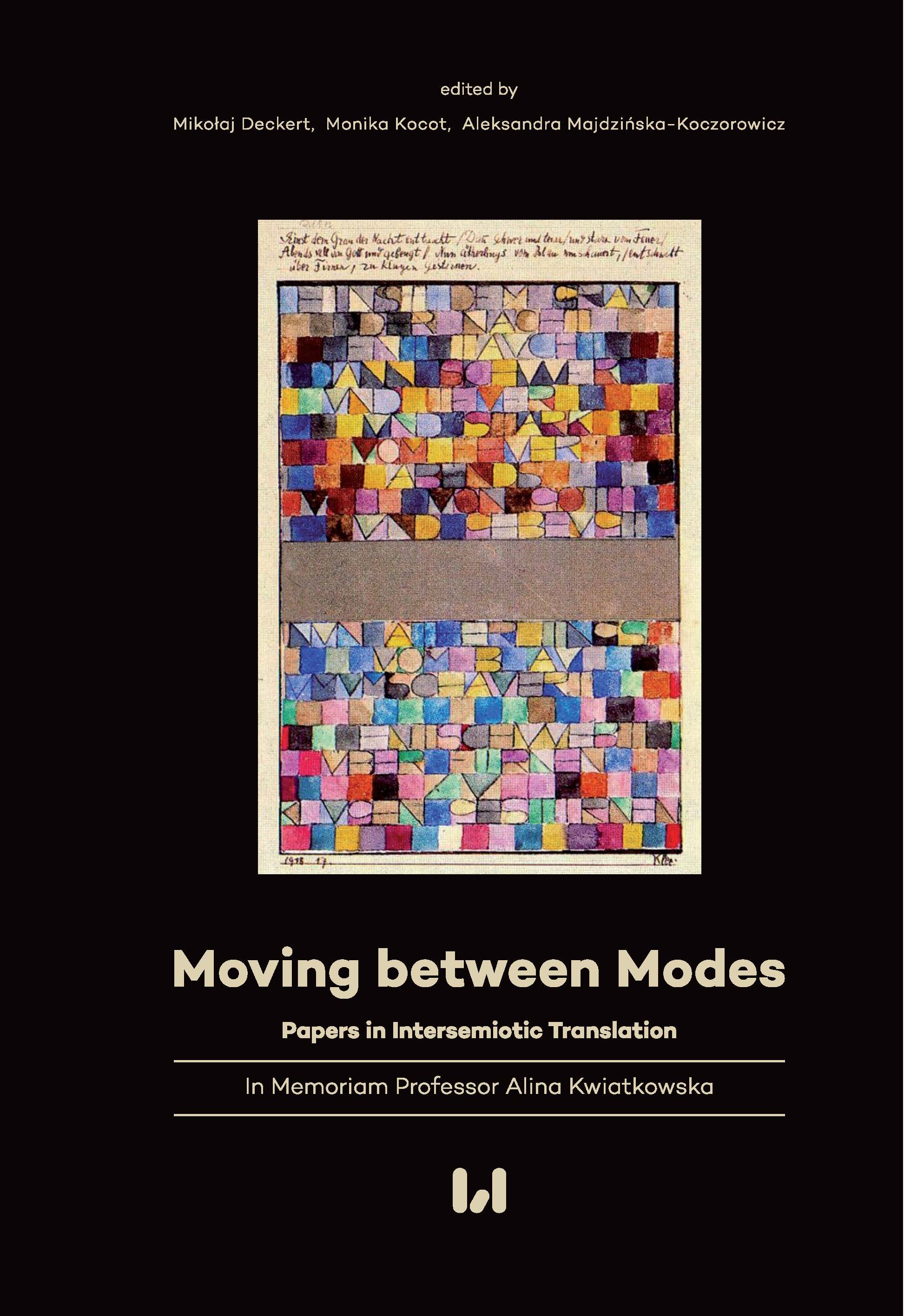
Keywords: perception;conceptualization; visual arts;ekphrastic poetry
The chapter employs a cognitive poetics approach to look at a poem by Donald Hall who ekphrastically represents The Scream by Edvard Munch.
More...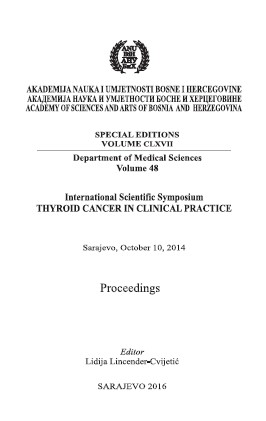
Keywords: thyroid cancer; radiotherapy; IMRT; IGRT; tomotherapy;
Aim: To discuss new technologies in radiotherapy treatment for thyroid carcinoma. Traditional radiotherapy for thyroid carcinoma has certain restrictions because spinal medulla is close to the tumor. The radiotherapy dose must therefore be reduced in order to prevent the damage to this structure. Introducing Intensity modulated radiotherapy (IMRT), Image guided radiotherapy (IGRT) or tomotherapy can improve target coverage in cases that are difficult to treat. Patients and methods: According to the hospital malignant diseases register of Clinical Center of Sarajevo University (UKCS) there were 149 patients diagnosed with thyroid cancer and treated in this institution from 2009 to 2013. Retrospective analysis of data from Oncology Clinic during this period showed that 18 patients were treated at the Oncology Clinic of UKCS. Results: Most patients treated at the Oncology Clinic received palliative treatment, and only one patient received curative treatment. 16 patients had metastatic disease at the time of presentation for treatment, and one developed metastases after our treatment. One patient currently shows no signs of disease. Conclusion: In most cases radiotherapy is reserved for palliative treatments, due to the dosage restrictions. New techniques such as IMRT, IGRT and/or tomotherapy have demonstrated efficacy in precise treatment for tumors and also an increase in disease control, while at the same time ensuring a better protection of organs at risk from exposure to unnecessary radiation and thereby reducing long-term toxicity. For these reasons, new techniques may be considered a viable option in the treatment for thyroid cancer.
More...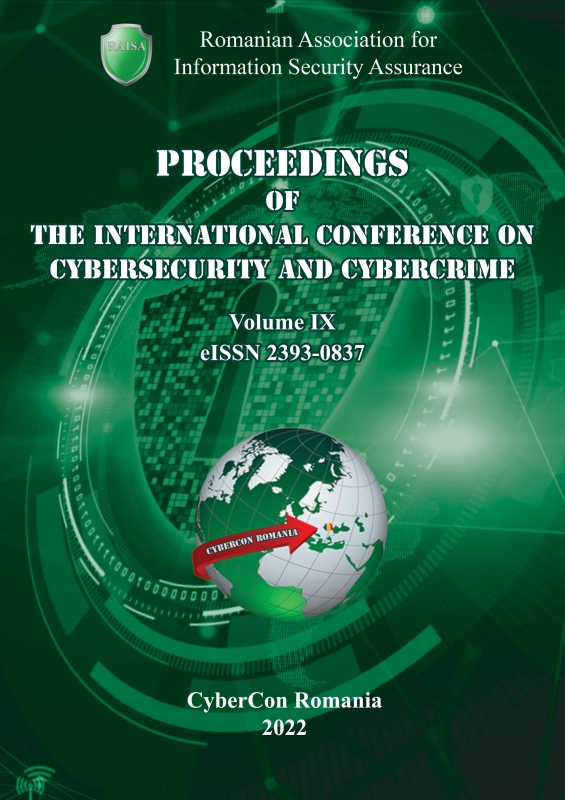
Keywords: Cybersecurity; GDPR; Healthcare; HIPPA; PHI; Privacy;
The healthcare industry sector is often considered a soft target for malicious actors. Having a large attack surface coupled with a focus directed toward patient care rather than security, often health organizations haven’t taken the necessary precautions to secure patient data or access to medical devices within their infrastructures. As the severity and the associated costs of cyber-attacks on entities within healthcare organizations continue to escalate, an increased effort within this industry to mitigate the risks associated with these vulnerabilities is necessary. This study seeks to present the most common types of healthcare attacks and their mitigation methodologies. Additionally, a discussion of how compliance with the GDPR in the European Union and the HIPPA regulation in the United States can positively affect a healthcare organization’s defensive posture.
More...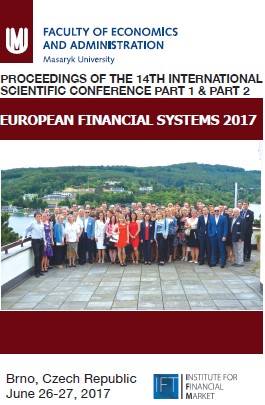
Keywords: Budget; state finance; state policy; Budget deficit; state debt;
The main aim of the paper is to identify distinctive features of the state Budget balancing policy realization, to define the internal and external factors that influence the State’s Finance and to determine sources of the supplement and balancing of the Ukrainian State Budget. As the result, the paper provides crucial contradictions of the state policy implementation of the State Budget balancing in Ukraine. In the article, we group main influential factors, depends on the nature of the influence (external and internal), that define the negative state and misbalance the Ukrainian Budget. Herein, we offer the scientific approach for Ukrainian Budget’s replenishment and balancing with main accent on activation of the internally related financial potential sources. Introduced approach will ensure the equalization of the expenditures and income, which will set up the basis for a long-term stable growth and resolving of the socio-economic issues. The results of the research are very important and can be applied for the anti-crisis plan development in order to ensure the additional incomes to the State Budget using the potential financial sources accumulation, as the basis for effective long-term execution of the Ukrainian state policy of the Budget Balancing.
More...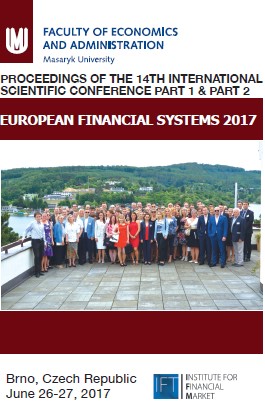
Keywords: consumption taxes; tax burden; tax rate; tax yield; mineral oil taxes;
The study identifies the importance of mineral oils tax rates and other relevant factors for the mineral oil taxes yields amount. The study is focused on the unleaded fuel and diesel because of the yields importance. The correlation was confirmed by the Pearson coefficients, which reached the value above of 0.8. Moreover, the tax rate was surprisingly identified as highly important factor for mineral oils taxes yields using the econometric modeling, together with factors as the net income per capita and number of registered vehicles. On the other side GDP, transport performance (freight and passenger transport), consumer retail price of petrol and diesel, and price of petrol were identified as not statistically important for the unleaded petrol and diesel tax yields amount in the condition of the Czech Republic within the analyzed period.
More...